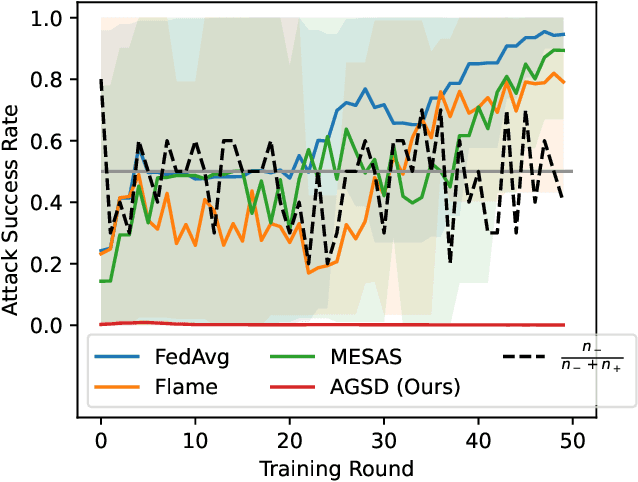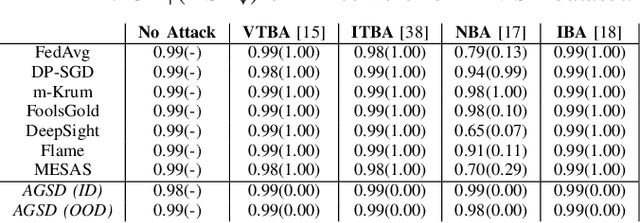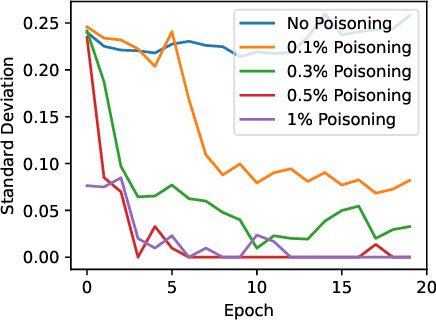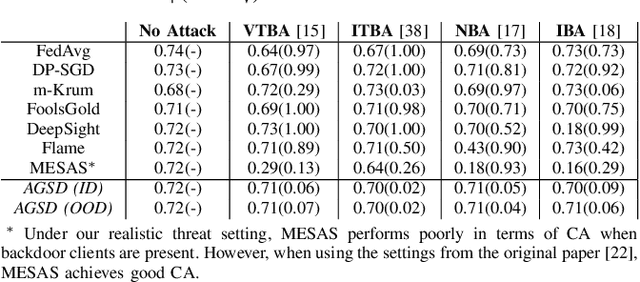Adversarially Guided Stateful Defense Against Backdoor Attacks in Federated Deep Learning
Paper and Code
Oct 15, 2024



Recent works have shown that Federated Learning (FL) is vulnerable to backdoor attacks. Existing defenses cluster submitted updates from clients and select the best cluster for aggregation. However, they often rely on unrealistic assumptions regarding client submissions and sampled clients population while choosing the best cluster. We show that in realistic FL settings, state-of-the-art (SOTA) defenses struggle to perform well against backdoor attacks in FL. To address this, we highlight that backdoored submissions are adversarially biased and overconfident compared to clean submissions. We, therefore, propose an Adversarially Guided Stateful Defense (AGSD) against backdoor attacks on Deep Neural Networks (DNNs) in FL scenarios. AGSD employs adversarial perturbations to a small held-out dataset to compute a novel metric, called the trust index, that guides the cluster selection without relying on any unrealistic assumptions regarding client submissions. Moreover, AGSD maintains a trust state history of each client that adaptively penalizes backdoored clients and rewards clean clients. In realistic FL settings, where SOTA defenses mostly fail to resist attacks, AGSD mostly outperforms all SOTA defenses with minimal drop in clean accuracy (5% in the worst-case compared to best accuracy) even when (a) given a very small held-out dataset -- typically AGSD assumes 50 samples (<= 0.1% of the training data) and (b) no heldout dataset is available, and out-of-distribution data is used instead. For reproducibility, our code will be openly available at: https://github.com/hassanalikhatim/AGSD.
 Add to Chrome
Add to Chrome Add to Firefox
Add to Firefox Add to Edge
Add to Edge